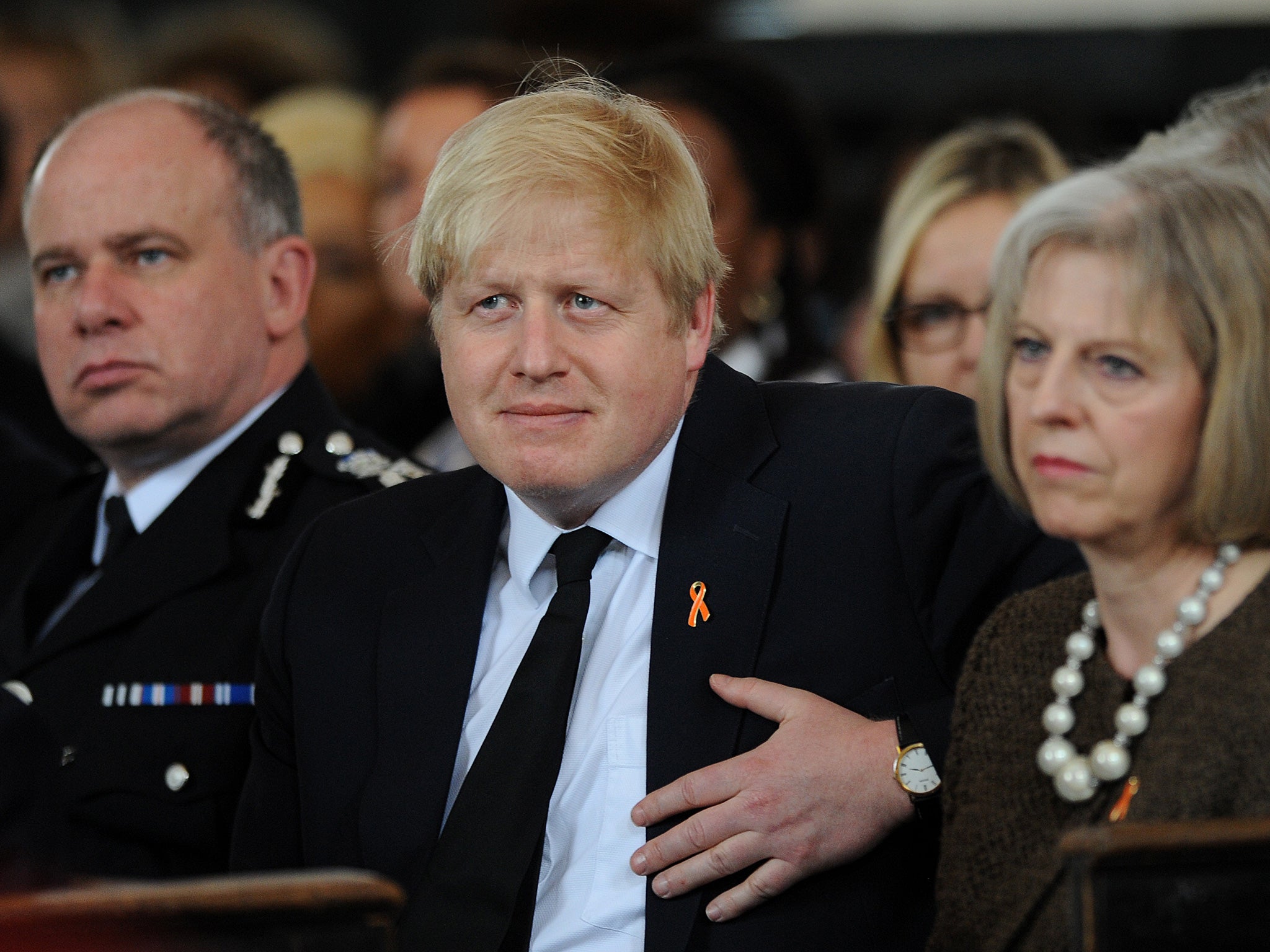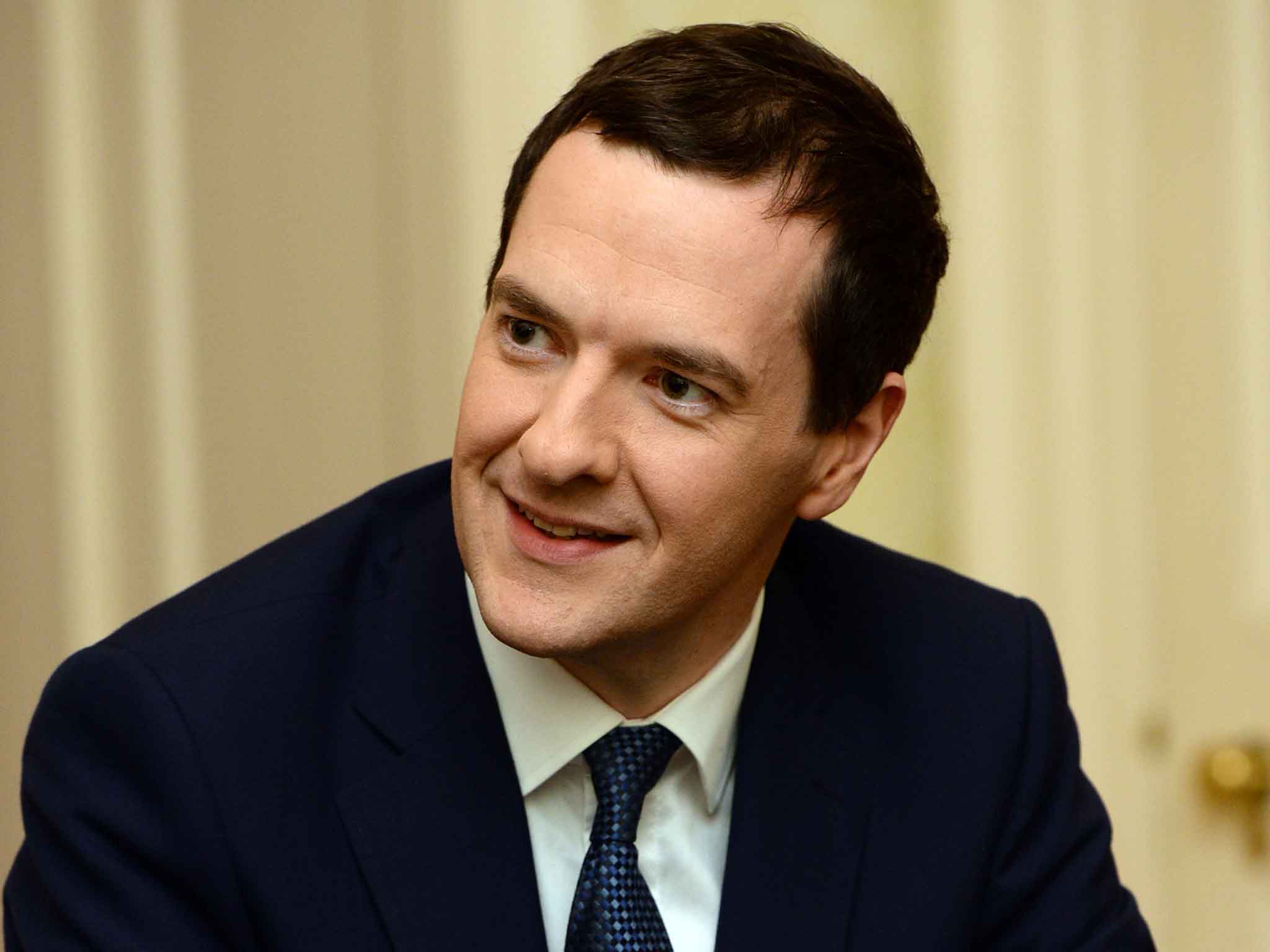EU Referendum: Will Boris Johnson break from the pack to lead the Brexit campaign?
It’s a win-or-bust gamble for the London Mayor. But the No camp needs a big beast to carry the referendum


Remember that strange race in the Olympic velodrome in which the cyclists ride slowly along, looking over their shoulders, waiting for someone to make a dash for it? That is the Conservative Party now. Boris Johnson is dodging and weaving in the pack, itching to make a sprint for the front. The front, in this metaphor, is to join the campaign to leave the European Union in a referendum that hasn’t been scheduled yet.
I don’t understand the psychology of the velodrome sprint. I think it is to do with wanting to be in second place for the part of the race when they pedal hard, to take advantage of the pocket of air behind the leader. But I do know about the psychology of the Europe debate and its interaction with the Conservative succession struggle.
The big fact about the EU referendum is that there is not one front-rank active politician on what used to be called the “No” and is now called the “Leave” side. As Blackadder might have said when discussing possible leaders of the campaign: Nigel Farage? Too unpopular. Nigel Lawson? Too old. Margaret Thatcher? Too dead.
This matters because elite opinion matters. The fashion of the moment may be anti-politics, eat the rich and bring down the elites, but it is hard to see how the Leave campaign can win without political leaders, business people and at least one newspaper that isn’t The Express. It is the credible political leadership that comes first. If Johnson or Theresa May were to come out for No, business leaders and the Mail, Telegraph, Sun or Times might follow.
At this point, we must pause to remind those who snort that Johnson is not credible that he won two terms as mayor of London, a Labour-leaning city, against a charismatic Labour candidate, and that he is the most popular elected politician in the UK – the only one in our ComRes Favourability Index with a net favourable rating.

True, he has not had a good run since he returned to the House of Commons in May. In this he reminds people of Roy Jenkins: both struggled when they returned to the House after big jobs outside; both were better authors than politicians; both led pluralist private lives; both found it hard to make friends; and both made it too obvious they wanted to be prime minister.
As Blackadder might have put it: Farage? Too unpopular. Lawson? Too old. Thatcher? Too dead
The general election was a disaster for Johnson. He was the front-runner to become Tory leader if David Cameron lost. Now it is the Chancellor who has been taken to the window and told, “One day, George, all this will be yours.” Osborne ground his rival’s face in the dust with his national living wage in the Budget – the living wage had been Johnson’s cause as much as Labour’s. (Last week Johnson fought back by saying he wanted to protect the working poor from Osborne’s cuts in tax credits.)
There are, however, two known possible obstacles to Osborne’s ambition. One is the referendum; the other is Conservative Party members, who will have the final choice between the two candidates presented to them. These obstacles are connected: 58 per cent of Tory members want to leave the EU, according to a survey by the Conservative Home website in February (33 per cent want to stay, 9 per cent don’t know).

If Johnson came out for coming out of the EU, that would change the maths of both the referendum and the leadership election. It is one of the few things that would make a vote to leave the EU slightly but significantly more likely. And it would probably help him to leapfrog over Osborne, who has recently overtaken him in the affections of Tory members.
But what a risk.
At the moment the opinion polls suggest the British public is evenly divided between Leave and Stay. The scenes of crowds of refugees at Hungarian railway stations have hardened attitudes against free movement within the EU. Yet the betting market suggests the chance of a Leave vote is only 30 per cent. If Johnson were to advocate it, he might push that figure up a bit, but would he bet his future on it?
Johnson is a genuine Eurosceptic in the proper sense of doubting the benefits of EU membership, but he has never been a Better Off Outer. That is why he let it be known that he was attracted by the idea floated by Dominic Cummings, Michael Gove’s former adviser, of voting to leave as a way to force the rest of the EU to agree big changes to the terms of British membership. The Leave campaign could present a vote against the EU as the first of two referendums to recast our relationship as one of free trade rather than of free movement.
If Johnson came out against the EU, and the referendum went his way, Cameron would have to resign and Johnson would be best placed to succeed him.
I’m not sure where Cameron is in the velodrome sprint metaphor. He seems to be looking over his shoulder too, trying to discourage any cabinet minister, and for these purposes Johnson is an honorary cabinet minister, from making a break for the exit. Why else would Iain Duncan Smith, paleo-sceptic, have survived the total failure of Universal Credit? Cameron must be calculating what he could offer Johnson – Foreign Secretary? – that would reinforce his caution about gambling everything on a No vote.
Johnson is a mystery, even to his friends. The last time he faced a choice, it was easy to guess that he would go for returning to the Commons before his term as London mayor had expired – it would have given him a chance at the top job if the general election had gone the other way. But now he has to choose between, say, a one in three chance that he could be prime minister by the end of 2017, and a two-thirds chance of his career being at an end if the referendum goes against him; or a big cabinet post under Prime Minister Osborne with little chance of succeeding to the top job himself.
I think he is more cautious than his swashbuckling image suggests. But, having learned a bit of humility in the political forecasting business, I’m not going to predict this one.
Twitter: @JohnRentoul
Join our commenting forum
Join thought-provoking conversations, follow other Independent readers and see their replies
Comments
Bookmark popover
Removed from bookmarks